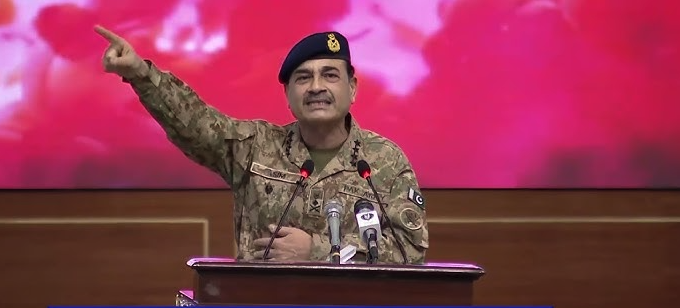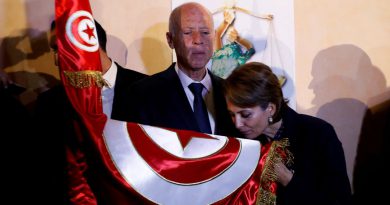OPINION: Pakistan’s Identity Crisis—When Religion Becomes a Political Weapon
Political Islam, once employed as an identity marker, now divides more than it unites.
In recent remarks, Pakistan’s Army Chief General Asim Munir articulated his ideological vision for the country with a clarity that many leaders deliberately avoid. He unapologetically reaffirmed the Two-Nation Theory and emphasized the enduring divide between Hindus and Muslims—a worldview deeply rooted in religious exclusivism.
For me, this honesty is refreshing. At least he is not hiding behind the concept of “Taqiya” (dissimulation) or the carefully crafted ambiguity that many political actors use. He owns his hardline position openly.
But we must ask—what does this ideological commitment to Islamic identity actually mean in practice? If Islam is the unifying principle behind Pakistan’s statehood, as claimed by its top military leadership, then why have fellow Muslims suffered under its policies—both at home and across borders?
In 2023, the Pakistani state forcibly expelled nearly 1.7 million Afghan refugees, many of whom had been living in the country for decades. Men, women, and children—many of whom were born in Pakistan—were sent back to a nation plagued by instability and repression. These individuals were not ideological enemies or agents of discord; they were fellow Muslims seeking safety and sustenance. The logic behind their expulsion wasn’t religious. It was ethnic, political, and economic.
This contradiction isn’t new. In 1971, during the Bangladesh Liberation War, West Pakistan (now Pakistan) unleashed brutal violence against East Pakistanis (now Bangladeshis). According to historians, up to three million people were killed, and countless women were subjected to sexual violence. And who were the victims? They were not religious “others.” They were Muslims—sharing not just faith, but language, history, and family ties.
These historical and recent episodes raise a troubling question: Is Pakistan’s national identity truly anchored in Islam, or has religion been used selectively—as a political and strategic tool to justify repression, exclusion, and control?
The Two-Nation Theory, which underpinned the partition of British India in 1947, proposed that Muslims and Hindus were distinct nations who could not coexist peacefully in a single state. But this idea, though foundational to Pakistan’s creation, has since mutated. Rather than fostering a pluralistic Muslim society, the theory has been wielded to divide people further—between Punjabis and Pashtuns, Baloch and Mohajirs, Shias and Sunnis, Deobandis and Barelvis. The outcome is not national unity, but chronic fragmentation.
Instead of serving as a source of cohesion, Islam has become a battlefield of sectarian and ethnic contestation. Political Islam, once employed as an identity marker, now divides more than it unites. The lived reality of the Pakistani state contradicts its ideological claims. Whether it’s the suppression of Baloch voices, the marginalization of Sindhi culture, or the persecution of Shias, the nation has drifted far from its idealized Islamic unity.
This is not to say that Islam, as a faith or moral system, is to blame. The issue is how Islam has been instrumentalized by the state and military elites. When any religion becomes a political instrument, it loses its spiritual purpose and becomes a tool of coercion.
The youth of Pakistan—and indeed South Asia as a whole—deserve better than this endless recycling of exclusionary doctrines. They do not need more sermons on “us vs. them.” They need education systems that teach empathy, critical thinking, and historical introspection. They need media that values truth over propaganda. And most of all, they need leadership that champions collaboration over conflict.
True unity is not built by suppressing diversity. It is achieved by embracing it. Religion can inspire compassion and solidarity, but only when it is divorced from the machinery of state control and identity politics. A nation cannot find peace if its founding principle is fear of the other.
Pakistan’s future lies not in reinforcing ideological walls but in tearing them down—brick by brick. It lies in building bridges with its neighbors, reconciling with its own people, and redefining what it means to be Pakistani—not as a monolithic Islamic identity, but as a plural, inclusive, and humane society.
History has shown us where hate leads. It’s time to try something different.
Disclaimer: Views expressed by writers in this section are their own and do not reflect Milli Chronicle’s point-of-view.



